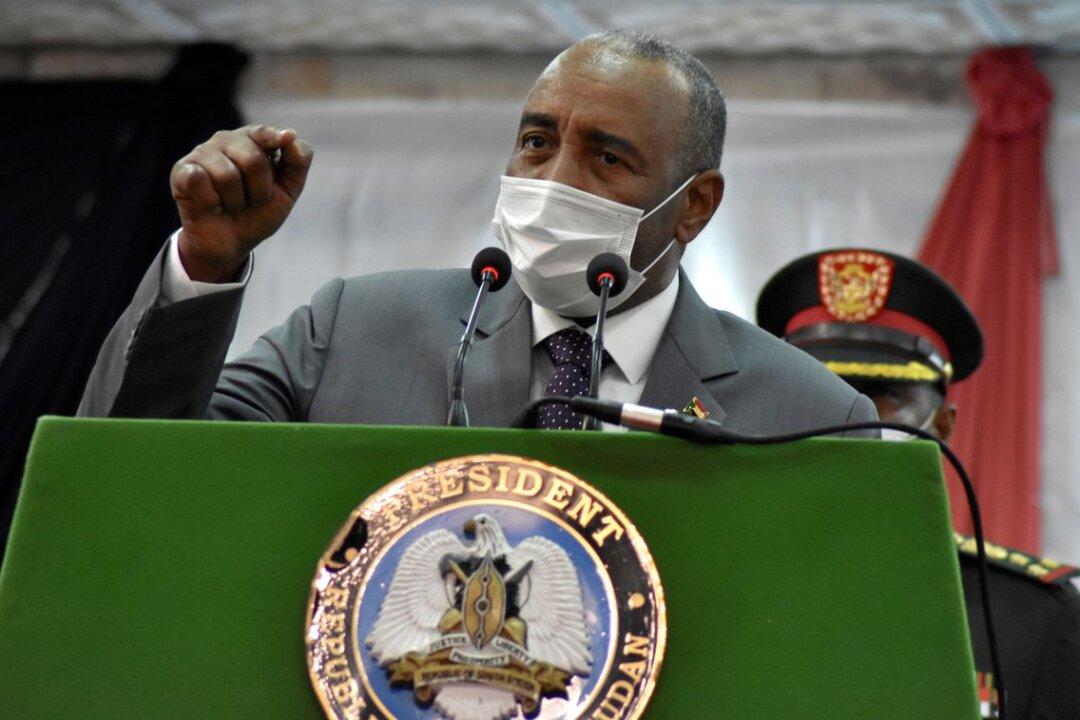The head of Sudan’s ruling council, Gen. Abdel Fattah Abdelrahman al-Burhan, announced a countrywide state of emergency on Oct. 25 and said he was dissolving the transitional sovereign council and the government.
The announcement came hours after Sudan’s military arrested acting Prime Minister Abdalla Hamdok, members of the Transitional Sovereignty Council’s civilian component, and several ministers.




